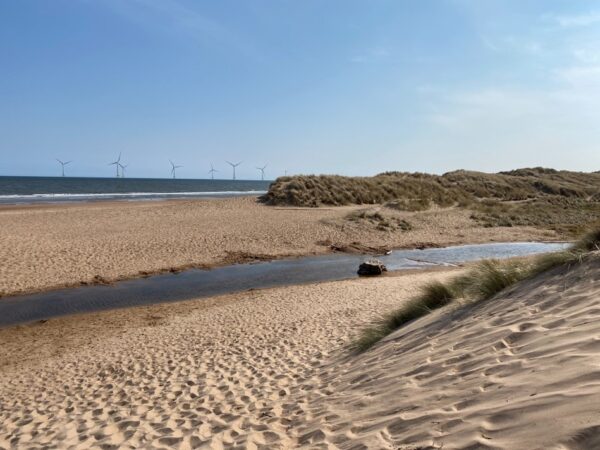The Crown Estate and the Offshore Wind Industry Council (OWIC) have announced the launch of a new £3.5m research project. Led by OWIC, it aims to improve the shared understanding of environmental compensation options relating to offshore wind’s interface with nature, and better coordinate the consenting process for offshore wind projects.
Subject to contracts, £3m will be provided by The Crown Estate via the Offshore Wind Evidence and Change Programme, which it leads in partnership with the Department of Food and Rural Affairs (Defra), and the Department for Energy Security and Net Zero (DESNZ). In addition to funding from The Crown Estate, participating OWIC developers will contribute around £0.5m financially as well as providing significant in-kind contributions, including access to schemes and specialist technical resource.
Photo by Jamie McLennan
Currently, there are uncertainties around how to assess the effectiveness of environmental compensation measures, which has led to delays in consenting decisions related to clean, renewable energy. In an increasingly busy marine environment, some measures may need to be delivered at scale, and across multiple developments. A more comprehensive bank of data and evidence on the efficacy of these measures can deliver a more strategic approach to compensation and deliver solutions that ensure the ecological coherence of the designated sites network. This will reduce consenting risks – providing opportunity for improved outcomes for the marine environment at a large scale. Ultimately, this can help enable achievement of 2030 offshore wind targets and make significant contributions towards net zero, whilst protecting the environment.
Through the £3.5m project, OWIC will lead on bringing together key stakeholders including offshore wind developers, representatives from statutory nature conservation bodies, The Crown Estate, UK Government, Devolved Governments and environmental non-governmental organisations, via the Collaboration on Offshore Wind Strategic Compensation (COWSC) governance framework, and will deliver a shared body of evidence on best-practice, research and practical pilot projects for offshore wind compensation spanning investment in four target measures:
- Provision of artificial nesting for seabirds – this could be onshore or offshore, such as building nesting structures on disused oil and gas platforms.
- Habitat restoration and creation
- Predation reduction – this can involve exclusion zones around protected seabird colonies and biosecurity programmes to improve seabird breeding success
- Removal of defunct infrastructure
Further information can be found here
